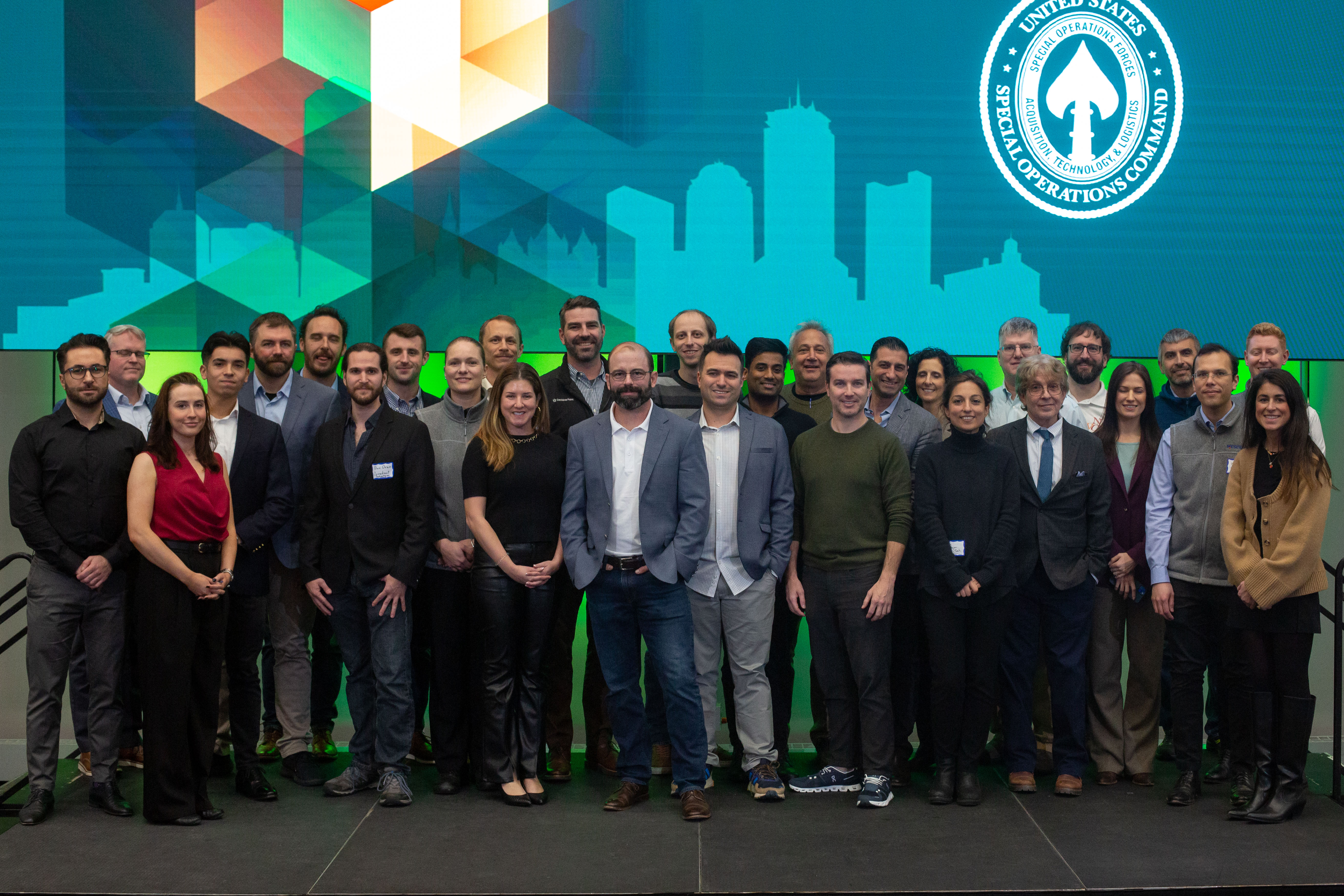
Startups Demonstrate Novel Dual-Use Technologies for Special Operations Forces

Twelve startups shared breakthrough defense solutions to advance the readiness of Special Operations Forces (SOF) for integrated deterrence, crisis, and conflict with technologies for digital mission engineering, human-machine interfaces, and autonomous systems during NSIN Propel Boston Demo Day at Gillette Stadium.
The ventures’ entry into the national security market serves to further strengthen the defense innovation base. The twelve early-stage companies fostered innovations including a system to detect and classify small-unmanned aerial systems (UAS), a geospatial data software, and a nano-fabrication technology.
“I have got to take space capabilities and connect them to airborne capabilities to pass data to under sea capabilities – all to get that information to a ground operator to do his or her task. We didn’t really have to think like that years ago. (…) When you put all these things together, they’re pretty wicked problems, but I think I’m standing with the right group of people to go attack that,” said Ms. Melissa Johnson, the USSOCOM Acquisitions Executive during her opening statement at the demo day.
NSIN hosted the demo day with the help of partners including United States Special Operations Command (USSOCOM), the Special Operations Forces Acquisition, Technology, and Logistics (SOF AT&L), and the Directorate of Science and Technology (S&T). For the ventures, the connections that Propel Boston enabled with these partners were invaluable.
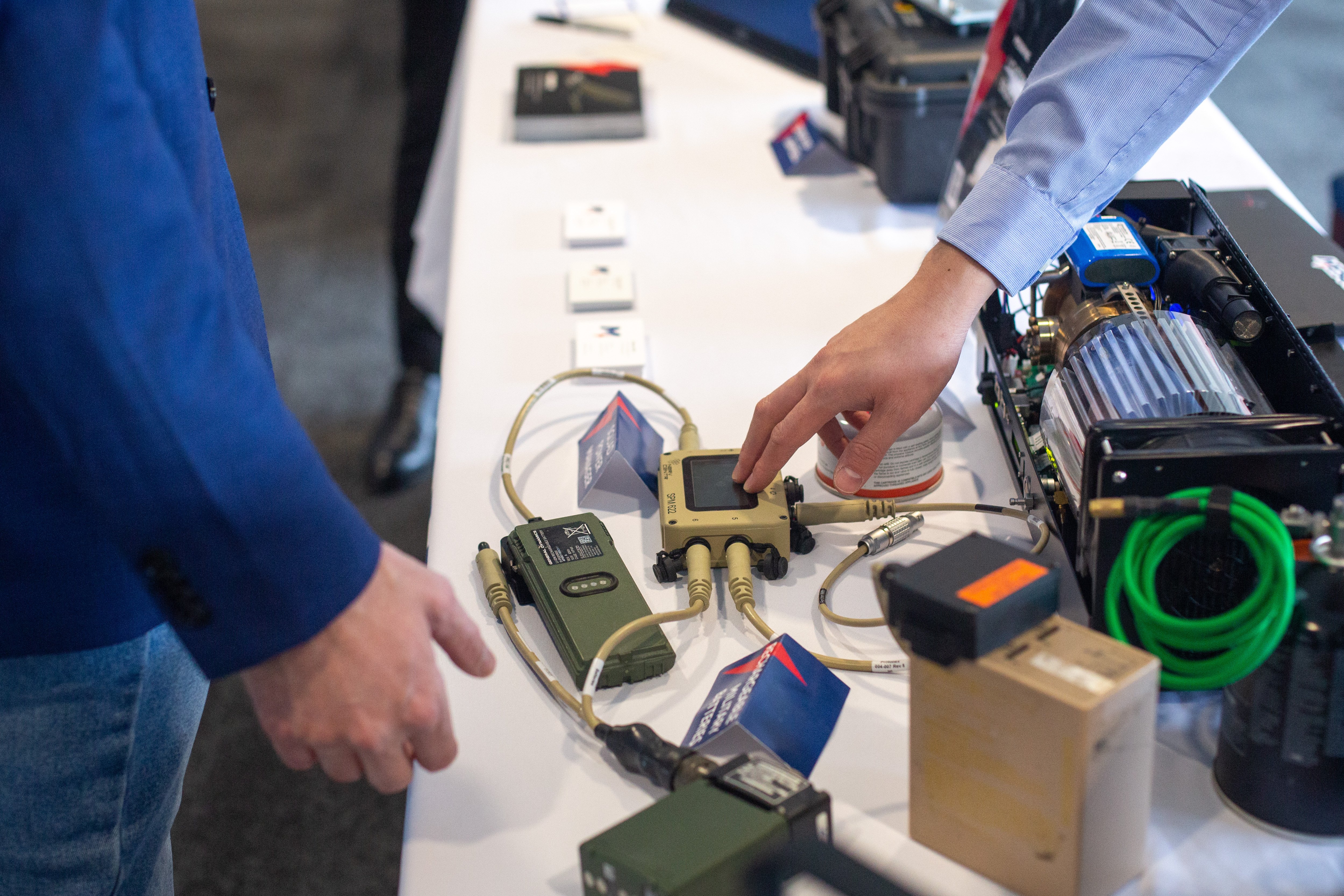
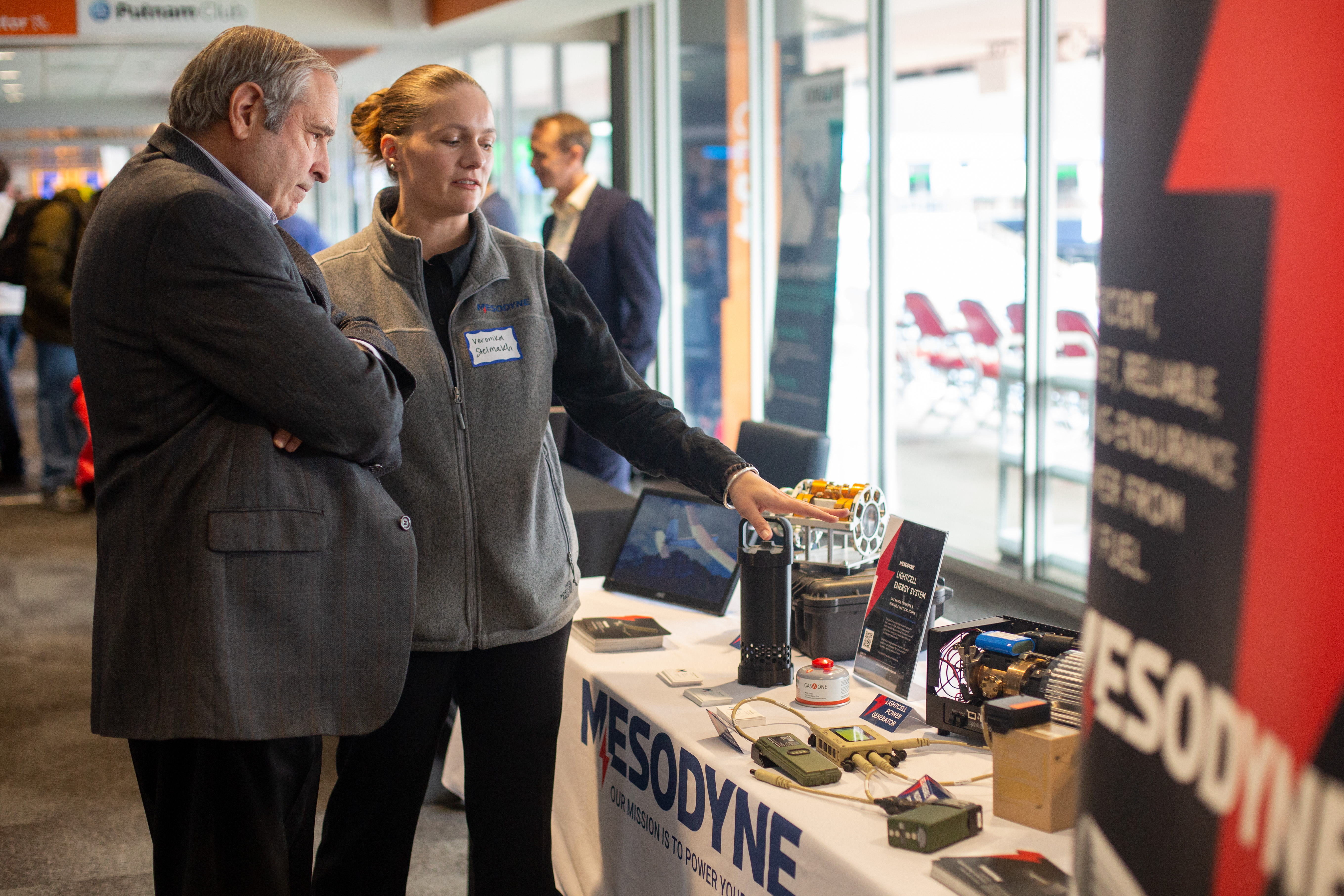
“NSIN was easily the best access we got, specifically to SOCOM, [the program] brought in the exact right people that we needed to see. (…) They have introduced us to the best personnel so far in any of our accelerators,” explained Matthew Ellis, the Product Development and Business Strategy Lead at Mesodyne, a company providing access to electricity in austere environments.
Daniel Pelaez, CEO of Cyvil.ai, a company providing automated infrastructure monitoring, also mentioned the power of the network building aspect of NSIN Propel programming, “We have known from day one that there was always potential for dual use. This was a great introduction to meet a lot of folks [in defense] and build that network. (…) We are looking forward to growing these relationships and finding huge ways that we can drive value with our solutions.”
Through the NSIN Propel accelerator, the ventures partnered with leaders from the military and the private sector to learn how to enter and scale within the federal market. All teams will leave the experience not only with new connections to DoD organizations, academia, and venture capital firms, but also with new insights into government contracting and new perspectives gained through customer interviews and sessions with subject matter experts.
For Omar Eleryan, the CEO of Cleo Robotics, a venture that enables intelligence, surveillance, and reconnaissance (ISR) in global positioning system (GPS) denied environments, the accelerator not only helped his company make connections to end-users and government agencies, but it also helped them better understand how to navigate the world of defense innovation. Speaking about the most valuable aspects of the NSIN Propel Boston he shared, “There are a few sessions around government contracting, for example, which is pretty tricky for most founders who don’t come from [the government] space.”
“Propel Demo Day shows the dual-use community the potential of these ventures and their innovations to impact the warfighter,” said NSIN’s Venture Portfolio Director and Director of Enterprise Services, Abigail Desjardins, shared, “Seeing our networks from the venture capital community and the government show up to support these teams demonstrates the commitment that the defense innovation community has to growing the defense ecosystem to better support the warfighter.”
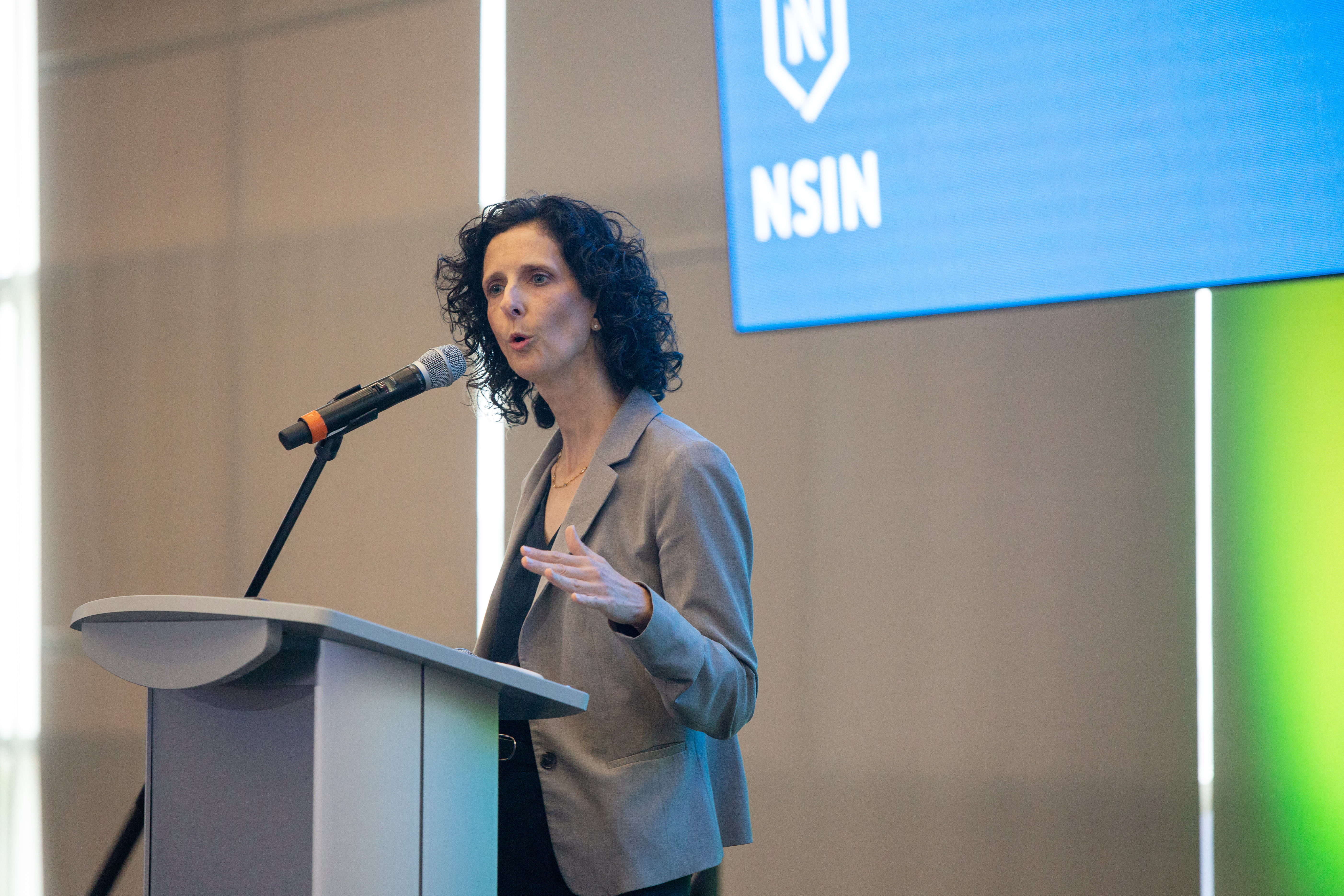
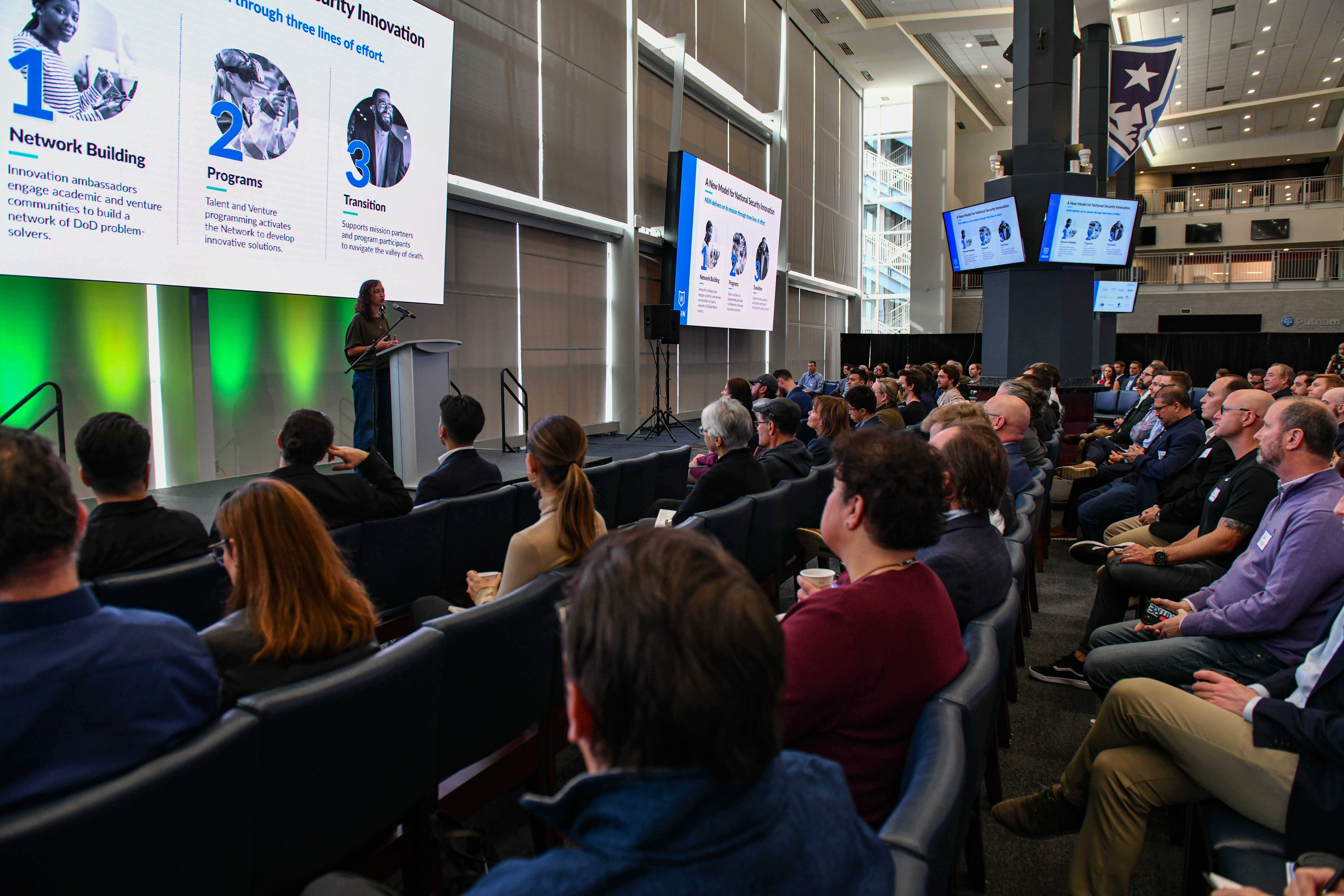
Meet the NSIN Propel Boston Cohort
- Apeiron Labs - Apeiron Labs improves the scale at which SOF can conduct intelligence, surveillance, and reconnaissance (ISR) operations. The venture provides a low-cost, buoy system to advance data capture volume while reducing carbon footprint.
- Atolla Tech - Atolla Tech improves the speed with which SOF can detect and classify small-unmanned aerial systems (UAS). The venture provides a light detection and ranging (LiDAR)-based sensing system that quickly detects and classifies objects in flight.
- Cleo Robotics - Cleo Robotics allows SOF to conduct ISR operations indoors, in confined spaces, and in global positioning system (GPS) denied environments, improving situational awareness in dense urban settings.
- Cyvl.ai - Cyvl.ai enables SOF to improve readiness by enabling quick, automated infrastructure monitoring with ready-to-deploy sensors and artificial intelligence (AI)-powered mapping.
- EARTH XYZ Inc. - EARTH XYZ improves ISR operations by increasing the speed and detail with which SOF can gather insights from geospatial data. Their generative AI-powered platform can be set to detect surface properties such as oil spills, water quality, and more, allowing the Forces to remain informed whether they are planning for action or responding to crises.
- Irradiant Technologies Inc. - Irradiant Technologies enables improvements to the size and weight of SOF equipment with a novel nano-fabrication technique. The technique has several potential applications, including in optics, biointerfaces, and mechanical metamaterials.
- Krtkl inc. - Krtkl allows the SOF to conduct operations more quickly and efficiently with software-defined, dual-use edge computing solutions for ‘hard’ real-time robotics, sensing, and space systems.
- Lexset.ai - Lexset.ai improves the function of SOF unmanned systems with high quality, photorealistic synthetic training data for computer vision algorithms. The improved training allows for improvements like better object detection accuracy.
- Mesodyne Inc. - Mesodyne gives SOF better access to electricity in austere environments by enabling portable, efficient, quiet, and reliable power generation. Their novel generator can convert various fuel types into electricity via light.
- Non-Von LLC - Non-Von helps SOFto work with AI tools more efficiently by improving the interface between algorithms and hardware. The system reduces computing costs and improves performance by allowing many independent processing streams instead of a single memory unit.
- TeraDAR - TeraDAR improves operator effectiveness with its perception sensors designed to ease radio frequency silicon and system integration challenges. The technology helps improve collaboration and communication across mission planning, logistics, training, and operations.
- Vyir Inc. - Vyir improves SOF surveillance and target detection capabilities by allowing the Forces to leverage high-resolution infrared (IR) at scale. Their low cost, disposable, and easily integrated IR cameras enable the technology to achieve wider deployment.
About National Security Innovation Network
NSIN is a program office in the U.S. Department of Defense, nested within the Defense Innovation Unit (DIU). We are set up to collaborate with a wide variety of innovators to include universities, researchers, students, entrepreneurs and start-ups. We create opportunities for collaboration across communities and connect those that might not traditionally work in national security. Together, we help drive national security innovation and develop technologies that directly support the individuals responsible for protecting our country.
For more information or interview requests with Team NSIN, please contact us at media@nsin.mil.